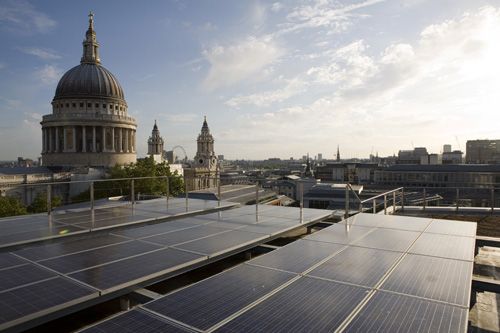

The Solar Trade Association (STA) has published its ‘Great British Solar Manifesto,’ which highlights the contribution solar can make to the well-being and prosperity of Britain over the next Parliament.
The Manifesto highlights the wide range of benefits solar can contribute to the UK. These include thousands of jobs, lower carbon, lower energy bills, billions of investment, smart energy infrastructure, better energy security, cleaner air, empowered communities and consumers, widespread enterprise and innovation as well as modern new buildings.
In less than a decade solar has transformed the future of energy; 882,228 homes now have solar power, communities; wholesale electricity prices have been lowered; cost reductions over this period of more than 70% have been unprecedented; and solar growth has catalysed the development of smart local networks and technologies, including storage and EVs.
The STA has set its sights on 40GW of solar by 2030, consistent with the Committee on Climate Change’s ‘high’ renewables scenario. Securing this trajectory would require the installation of around 10GW of new solar capacity over the next Parliament, a near doubling of current capacity that would see solar provide around ten per cent of UK power by 2022.
CEO, Paul Barwell, said: “Whichever party wins this election – they should remember that solar has already won the public vote on energy by a landslide. Every day people recognise the overwhelming benefits solar offers, from cheap power to very real control over energy bills. If politicians really want to transform choice and competition in the energy market for good, their efforts are best spent making solar power and storage accessible to the millions of people and businesses who want it.
“Unlocking the benefits of solar will be easy for the next government because we are not looking for new subsidies. However, the industry now urgently needs energy policy to work on a level playing field, with the grain of market forces, while properly costing carbon. We also need fair tax treatment and effective regulation, including for new build, smart networks and business carbon performance.”
The extent to which 10GW could be delivered over the next Parliament depends on whether the new government levels the playing field for solar power and pursues progressive regulation and fair taxes. It will also depend on the speed of network modernisation.
Deployment of solar has dropped by 80%, compared to average deployment over the past seven years. The solar industry has borne the brunt of government policy cuts, despite being responsible for only six per cent of the government’s overspend on renewables. Over the past year the industry has been left fighting against shock business rate rises of up to 800% for rooftop solar – taxes that do not apply to solar competitors on the continent and to onsite fossil generation in the UK.
Paul continued: “The speed and direction of technology change is clear. The global solar market is estimated in trillions. Solar sits at the heart of a smart energy system that can save the UK billions. If we are to seize these tremendous opportunities in energy, the next government will enable the solar Britain that pretty much everybody wants, and become a global leader in decentralised smart flexible power.”
